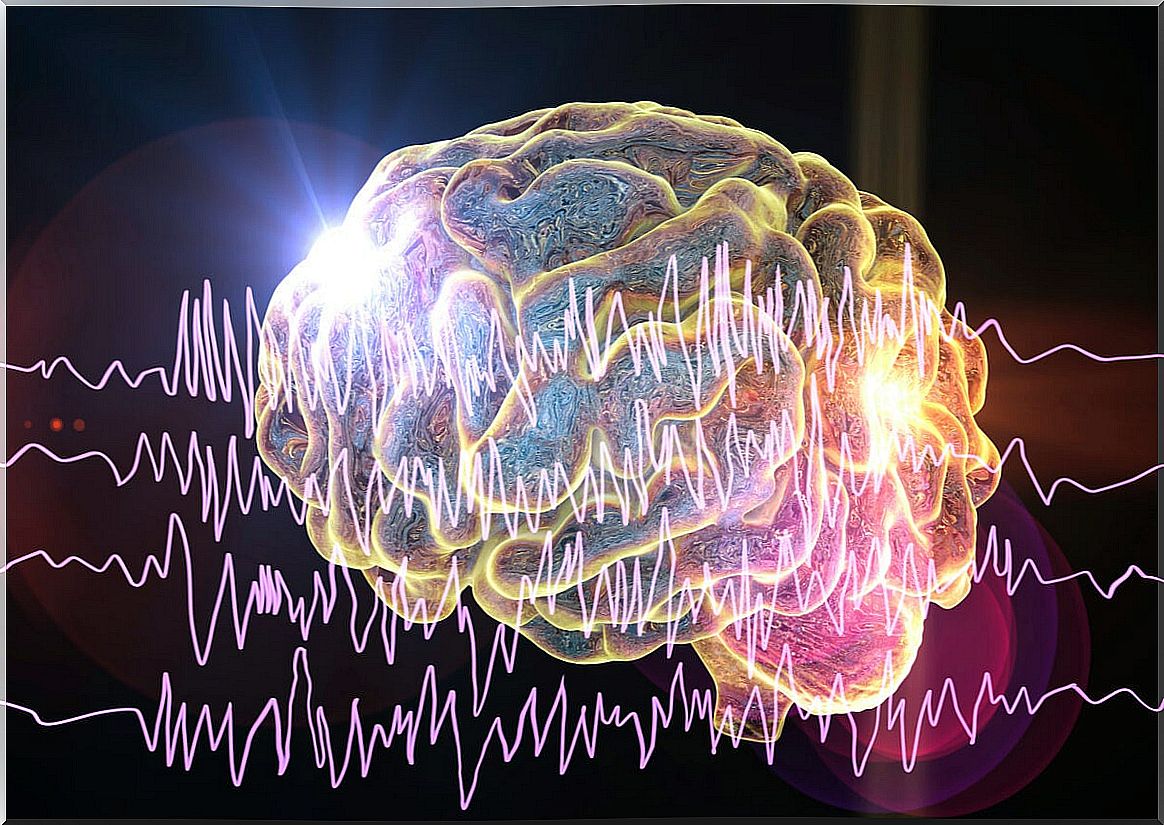Rivotril: What Is It For?
Rivotril is one of the trademarks under which clonazepam is marketed, an active principle that belongs to the benzodiazepine family.
This medicine acts on the central nervous system to combat, mainly, seizures, anxiety states and clinical pictures that present alterations in mood.
Rivotril is also effective in preventing absences, Lennox-Gastaut syndrome, akinetic and myoclonus seizures, as well as myoclonus that occurs at night. However, it is not effective for the treatment of generalized tonic-clonic seizures.
Thus, Rivotril is indicated when patients have not responded to other treatments for myoclonic seizures.
The first benzodiazepine was discovered in 1949 by the scientist Leo Sternbach and was later synthesized by Roche laboratories in 1955. This same laboratory is the same one that synthesized clonazepam 30 years later.
What is epilepsy?

To better understand the effect of clonazepam, it is important to understand the pathology for which Rivotril is indicated. In this sense, epilepsy is a disease that affects the central nervous system, causing brain activity to stop working properly.
In this way, the body can convulse or the patient can suffer periods of strange behavior or sensations. There are even times when consciousness is lost.
There are two main types of seizures :
- Focal seizures – These occur because apparently only part of the brain is affected. They can take place with loss of consciousness or without alteration in it.
- Generalized seizures : are those that, apparently, occur in all areas of the brain. In turn, they can be classified into absence, tonic, atonic, clonic, myoclonic and tonic-clonic seizures.
How does Rivotril exert its effect on the body?
Rivotril, or in its case clonazepam, acts in different parts of the brain, triggering a sedative, hypnotic and anticonvulsant action. To achieve these effects and, therefore, be effective in treating the indications described, Rivotril interacts with GABA receptors.
GABA is a neurotransmitter in the brain, that is, a substance that acts as a messenger in the nervous system. It transmits neurotransmission signals, which are the transmission of information from one neuron to another. In the case of GABA, it transmits inhibitory signals.
In other words, GABA reduces or inhibits neuronal activity, which is why it plays an important role in behavior, in the response to stress and in anxiety disorders.
During an epileptic picture, this neurotransmitter is found in low concentrations, so Rivotril, by enhancing the action of GABA, improves these pathological pictures. However, studies are continuing on the action of GABA in this disease.
Rivotril adverse reactions
On the other hand, it is important to take into account that, at chronic and high doses, the cognitive function of patients can worsen. It is a very addictive drug and produces a great tolerance. Therefore, it is administered for short periods of time.

It also produces physiological dependence, with the consequent withdrawal syndrome, if the drug is withdrawn abruptly. In the most severe cases, it can lead to death from this syndrome. It is for this reason that the dose of all benzodiazepines should be withdrawn gradually, never suddenly.
Most of the adverse reactions associated with Rivotril treatment are due to its effect on the central nervous system. Among them are:
- Fatigue.
- Dizziness
- Confusion.
- Tremors
- Headaches.
In addition, it produces, in a paradoxical way, a stimulation of this same system, which can trigger sleep problems, euphoria, attacks of rage and hostility. However, these adverse reactions tend to be more frequent in psychiatric patients and hyperactive children.
Other adverse reactions described in clinical trials with clonazepam were the following:
- Urticaria.
- Confusion.
- Depression.
- Bradycardia and hypotension.
Rivotril is the brand name of the active substance clonazepam . Among other indications, it is used for the treatment of epilepsies, a disease whose origin is in the central nervous system.
You can consult with your doctor any questions you have about this drug, as well as communicate any symptoms you feel since you started treatment with it.








